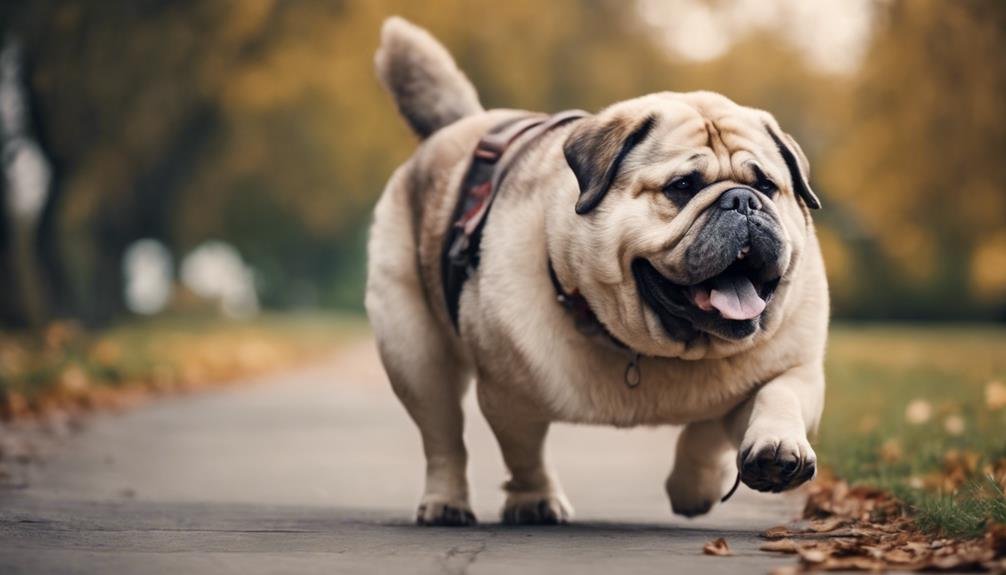As our canine companions gracefully age, they encounter a spectrum of health challenges that demand our attention and care. From joint issues and arthritis to sensory impairments like hearing and vision loss, the journey of senior pup care is multifaceted.
With ailments such as incontinence, weight management concerns, and monitoring medical conditions looming, it becomes crucial for pet owners to be vigilant. Each challenge presents unique considerations, requiring tailored strategies to ensure our sweet seniors enjoy a high quality of life.
Understanding these health challenges is key to providing the best possible support for our aging furry friends.
Key Takeaways
- Arthritis and joint issues are common in senior dogs, requiring supplements and comfortable bedding.
- Incontinence may develop with age, necessitating monitoring, possible medication, and skin care.
- Obesity is a risk due to decreased activity, demanding a controlled diet for optimal health.
- Watch for sensory loss, growths, tumors, and other medical conditions in aging dogs for early detection and treatment.
Joint Issues and Arthritis
As dogs age, they commonly experience joint issues and arthritis, impacting their mobility and overall quality of life. Arthritis, particularly osteoarthritis, affects weight-bearing joints such as hips, knees, elbows, and shoulders in senior dogs.
Signs of arthritis include decreased activity levels and reluctance to engage in previously enjoyed activities. To alleviate discomfort, joint supplements containing glucosamine and chondroitin can be beneficial.
Providing a warm sleeping spot with cushioning helps prevent pressure sores, while surrounding your pet with familiar items can ease arthritis-related irritability. Regular veterinary check-ups can aid in early detection and management of arthritis, ensuring that your senior dog remains as comfortable and active as possible in their later years.
Incontinence Concerns
In aging dogs, incontinence poses a significant concern due to the physiological changes that affect muscle and nerve function. Older pets may experience a weakening of the muscles controlling the bladder, leading to involuntary urine leakage.
It is essential for pet owners to regularly check for signs of wetness or soiling in their dogs and consult with a veterinarian if incontinence becomes a problem. Treatments such as medications can help manage incontinence issues, preventing skin irritation and infections caused by urine and fecal scalding.
Weight Management and Obesity

Addressing weight management and obesity in aging dogs is crucial to ensuring their overall health and longevity. Older dogs tend to put on body fat despite consuming fewer calories, making obesity a common issue. To prevent weight gain, feed your senior dog a diet with lower caloric density and a normal protein level.
Obesity exacerbates arthritis, decreases mobility, and can lead to illnesses like diabetes in senior dogs. Consulting with a vet for nutrition and diet advice is essential to maintain optimal health. Regular monitoring of your aging dog's weight and body condition, along with appropriate exercise, can help manage weight effectively and mitigate the associated health risks.
Sensory Impairments: Hearing and Vision
Investigating the sensory impairments of hearing and vision in aging dogs reveals crucial insights into their overall well-being. As dogs age, they may experience changes in their ability to hear and see, impacting their daily lives. Understanding and addressing these sensory challenges are essential for maintaining a high quality of life for senior pups.
Here are some key points to consider:
- Regular Vet Check-ups: Schedule routine veterinary appointments to monitor your dog's sensory functions.
- Adapt Environment: Make accommodations in the living space to assist dogs with impaired hearing or vision.
- Provide Mental Stimulation: Engage in activities that stimulate other senses to compensate for sensory loss.
- Consultation with Specialists: Seek advice from veterinary ophthalmologists or audiologists for specialized care.
Monitoring Medical Conditions
As we focus on the health and well-being of aging dogs, a critical aspect to prioritize is monitoring their medical conditions, ensuring early detection and management for optimal care.
Regular monitoring for conditions such as growths, tumors, and cancer is essential as older dogs are more prone to developing these health issues. Keeping a close eye on any abnormal masses for changes in size, shape, color, or consistency can aid in early intervention and treatment.
Additionally, scheduling routine veterinary check-ups and conducting at-home body checks can help identify any concerning developments promptly.
Conclusion
In conclusion, as senior dogs age, they may experience various health challenges such as joint issues, incontinence, weight management issues, sensory impairments, and medical conditions.
It is crucial for pet owners to be vigilant in monitoring and addressing these ailments to ensure their beloved companions have a comfortable and dignified quality of life.
By understanding and proactively managing these health challenges, pet owners can provide optimal support for their aging dogs.




